Political Science > QUESTIONS & ANSWERS > WGU C963 Court Cases Questions and Answers 100% Pass (All)
WGU C963 Court Cases Questions and Answers 100% Pass
Document Content and Description Below
WGU C963 Court Cases Questions and Answers 100% Pass Marbury v. Madison ✔✔This case involved the Judiciary Act of 1789. The Supreme Court declared that the law conflicted with the U.S. Constitu... tion, and the case established the principle of judicial review wherein the Supreme Court has the power to declare laws passed by Congress and signed by the president to be unconstitutional. Dred Scott v. Sanford ✔✔Supreme Court case that decided US Congress did not have the power to prohibit slavery in federal territories and slaves, as private property, could not be taken away without due process - basically slaves would remain slaves in non-slave states and slaves could not sue because they were not citizens Plessy v. Ferguson ✔✔a 1896 Supreme Court decision which legalized state ordered segregation so long as the facilities for blacks and whites were equal United States v. Miller ✔✔1939; ruled that the National Firearms Act of 1934 was constitutional, allowing federal govt to ban interstate shipping of some unregistered guns (because it was unrelated to state militias) Korematsu v. US ✔✔1944 Supreme Court case where the Supreme Court upheld the order providing for the relocation of Japanese Americans. It was not until 1988 that Congress formally apologized and agreed to pay $20,000 2 each survivor Brown v Board ofEducation of Topeka (1954) ✔✔Supreme Court ruling that overturned the Plessy v. Ferguson Supreme Court Case of 1896. "Separate but equal" is Unconstitutional in the field of public education Mapp v. Ohio ✔✔Established the exclusionary rule was applicable to the states (evidence seized illegally cannot be used in court) Gideon v. Wainwright ✔✔A person who cannot afford an attorney may have one appointed by the government Sherbert vs. Verner ✔✔Unemployment may not be denied on religious basis Grsiwold v. Connecticut ✔✔Although several state constitutions do list the right to privacy as a protected right, the explicit recognition by the Supreme Court of a right to privacy in the U.S. Constitution emerged only in the middle of the twentieth century. In this 1965 case, the court spelled out the right to privacy for the first time in a case that struck down a state law forbidding even married individuals to use any form of contraception. Miranda v. Arizona ✔✔Supreme Court held that criminal suspects must be informed of their right to consult with an attorney and of their right against self-incrimination prior to questioning by police. Harper v. Virginia State Board of Elections ✔✔Struck down poll taxes at the state level Tinker v. Des Moines ✔✔Students have the right to symbolic speech at school as long as it is not disruptive Brandenburg v. Ohio ✔✔1969--Determined that a law that proscribes advocacy of violence for political reform is constitutional if applied to speech that is not directed toward producing imminent lawlessness and is not likely to produce such action is not constitutional. Miller v. California ✔✔A 1973 Supreme Court decision that avoided defining obscenity by holding that community standards be used to determine whether material is obscene in terms of appealing to a "prurient interest" and being "patently offensive" and lacking in value. Cohen v. California ✔✔This case involved an arrest and conviction for disturbing the peace for wearing a jacket expressing opposition to the draft (and the Vietnam War). The conviction was overturned by the Supreme Court since his actions were silent and he made no attempt to otherwise disturb the peace. Roe v. Wade ✔✔(1973) legalized abortion on the basis of a woman's right to privacy Citizens United v. Federal Election Commission ✔✔A 2010 landmark Supreme Court case that ruled that individuals, corporations, and unions could donate unlimited amounts of money to groups that make independent political expenditures. Burwell v. Hobby Lobby ✔✔(2014) Allowed closely-held, for-profit corporations to be exempt from a law its owners religiously object to if there is a less restrictive means of furthering the law's interest. Furman v. Georgia ✔✔This 1972 Supreme Court case struck down all state laws allowing the death penalty stating that they allowed for too much discretion on the part of the judge and jury resulting in lack of consistent administration of the penalty. Gillette v. United States ✔✔Individual cannot use religion to get out of particular war, must be against all wars Lemon v. Kurtzman ✔✔The 1971 Supreme Court decision that established that aid to churchrelated schools must (1) have a secular legislative purpose; (2) have a primary effect that neither advances nor inhibits religion; and (3) not foster excessive government entanglement with religion. McDonald v. Chicago ✔✔The right of an individual to "keep and bear arms" protected by the 2nd Amendment is incorporated by the due process clause of the 14th Amendment and applies to the states. Texas v. Johnson ✔✔A 1989 case in which the Supreme Court struck down a law banning the burning of the American flag on the grounds that such action was symbolic speech protected by the First Amendment. Planned Parenthood v. Casey ✔✔A 1992 case in which the Supreme Court loosened its standard for evaluating restrictions on abortion from one of "strict scrutiny" of any restraints on a "fundamental right" to one of "undue burden" that permits considerably more regulation. Miller v. Johnson ✔✔1995 SuCo: Racial gerrymandering violates the equal protection clause. McCulloch v. Maryland ✔✔Maryland was trying to tax the national bank and Supreme Court ruled that federal law was stronger than the state law Gibbons v. Ogden ✔✔Regulating interstate commerce is a power reserved to the federal government Minersville School District v. Gobitis ✔✔Two children were expelled for not saluting the American flag at school due to being Jehovah's Witnesses. Result: SC ruled that the salute does not infringe on liberties protected by the 1st and 14th. National unity. - in the state's interest West Virginia v. Barnette ✔✔Schools cannot require students to salute the flag or say pledge of allegiance Sherbert v. Verner ✔✔a case in which the Supreme Court of the United States held that the Free Exercise Clause of the First Amendment required that government demonstrate a compelling government interest before denying unemployment compensation to someone who was fired because her job conflicted with her religion. Oregon HR v. Smith ✔✔the state could deny unemployment benefits to a person fired for violating a state prohibition on the use of peyote, even though the use of the drug was part of a religious ritual. United States v. Windsor ✔✔Federal government must provide benefits to legally married samesex couples Obergefell v. Hodges ✔✔States obligated to recognize same-sex marriage from other states. [Show More]
Last updated: 1 year ago
Preview 1 out of 7 pages
.png)
Also available in bundle (1)
.png)
WGU C963 Bundled Exams Questions and Answers with Certified Solutions
WGU C963 Bundled Exams Questions and Answers with Certified Solutions
By Nutmegs 1 year ago
$25
22
Reviews( 0 )
Document information
Connected school, study & course
About the document
Uploaded On
Feb 28, 2023
Number of pages
7
Written in
Additional information
This document has been written for:
Uploaded
Feb 28, 2023
Downloads
0
Views
58

.png)
.png)
.png)
.png)
.png)
.png)
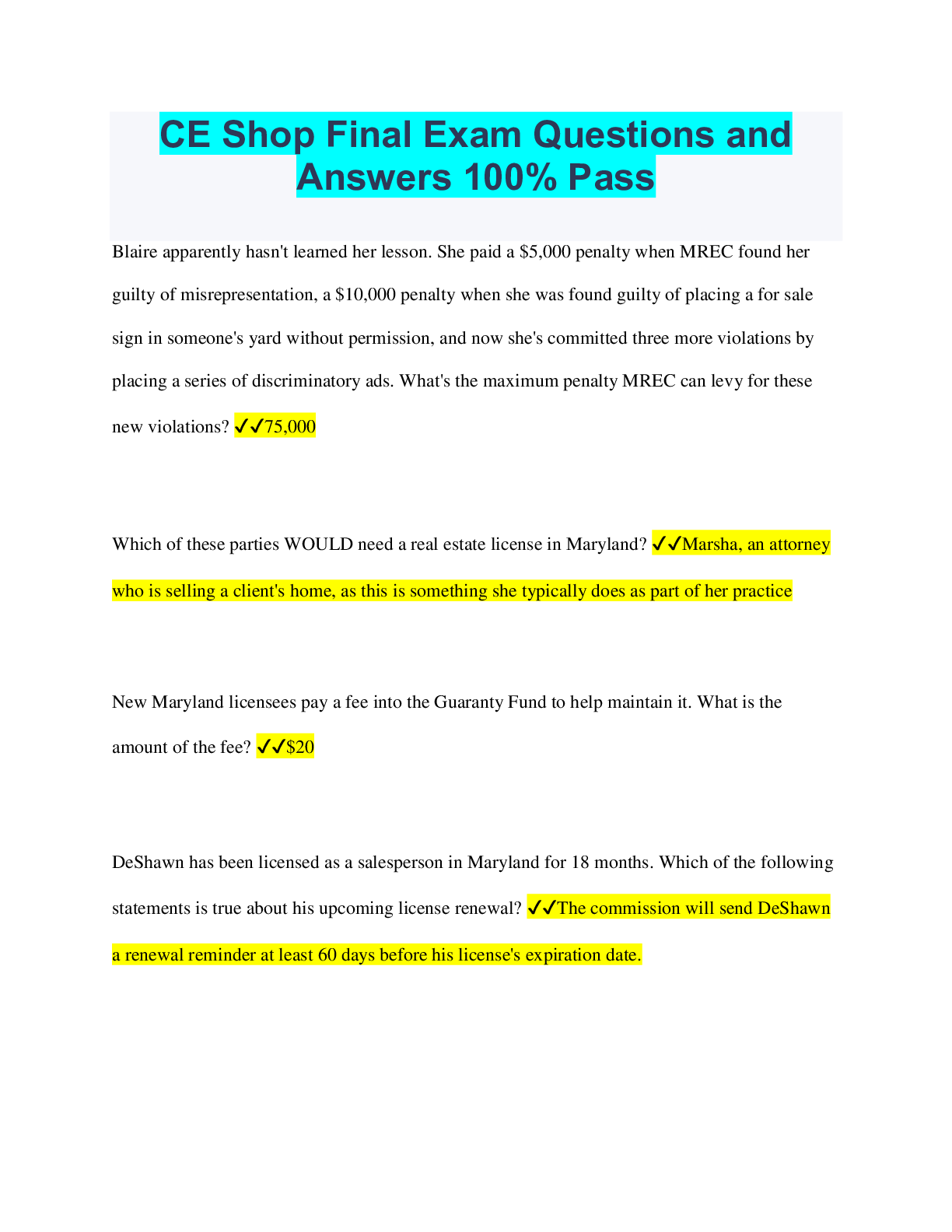
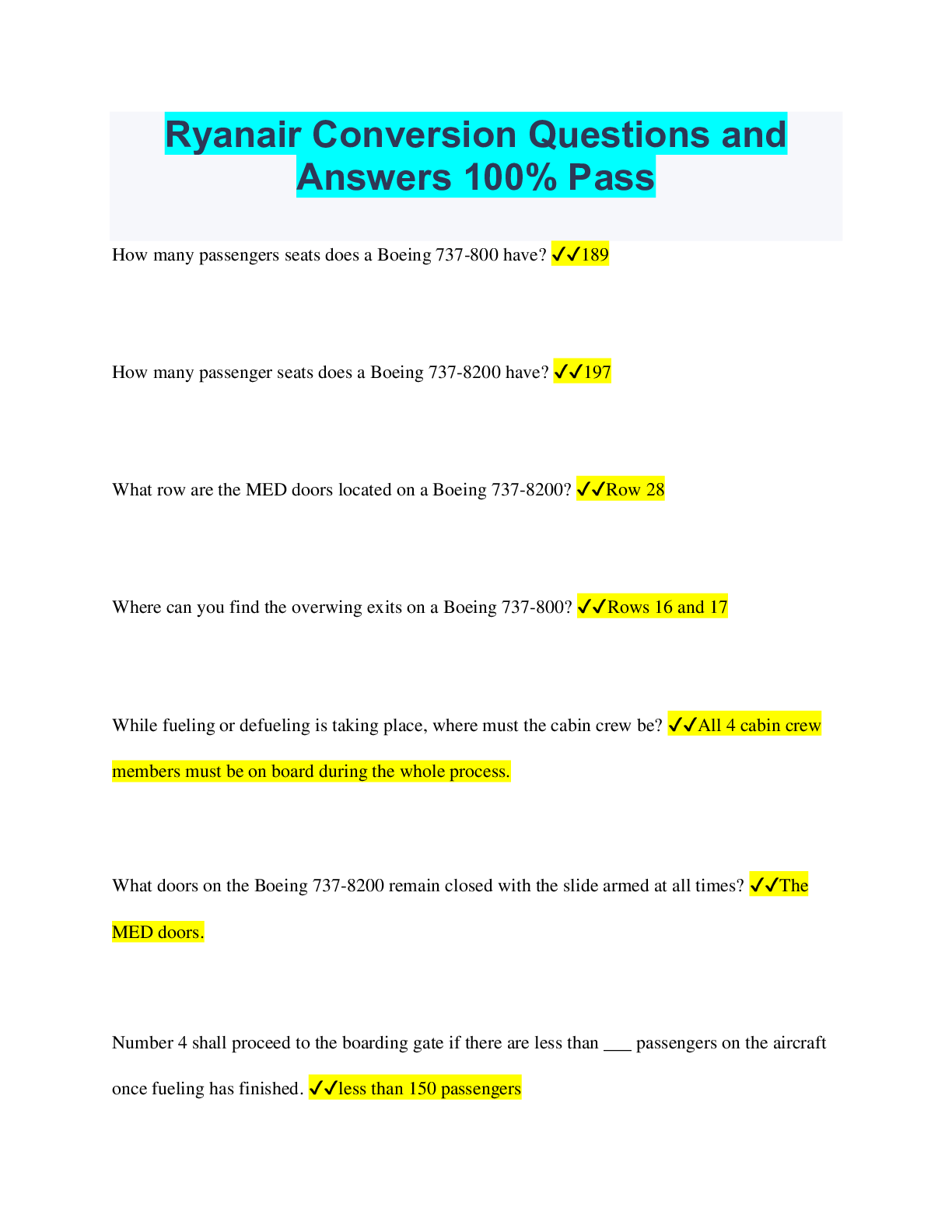

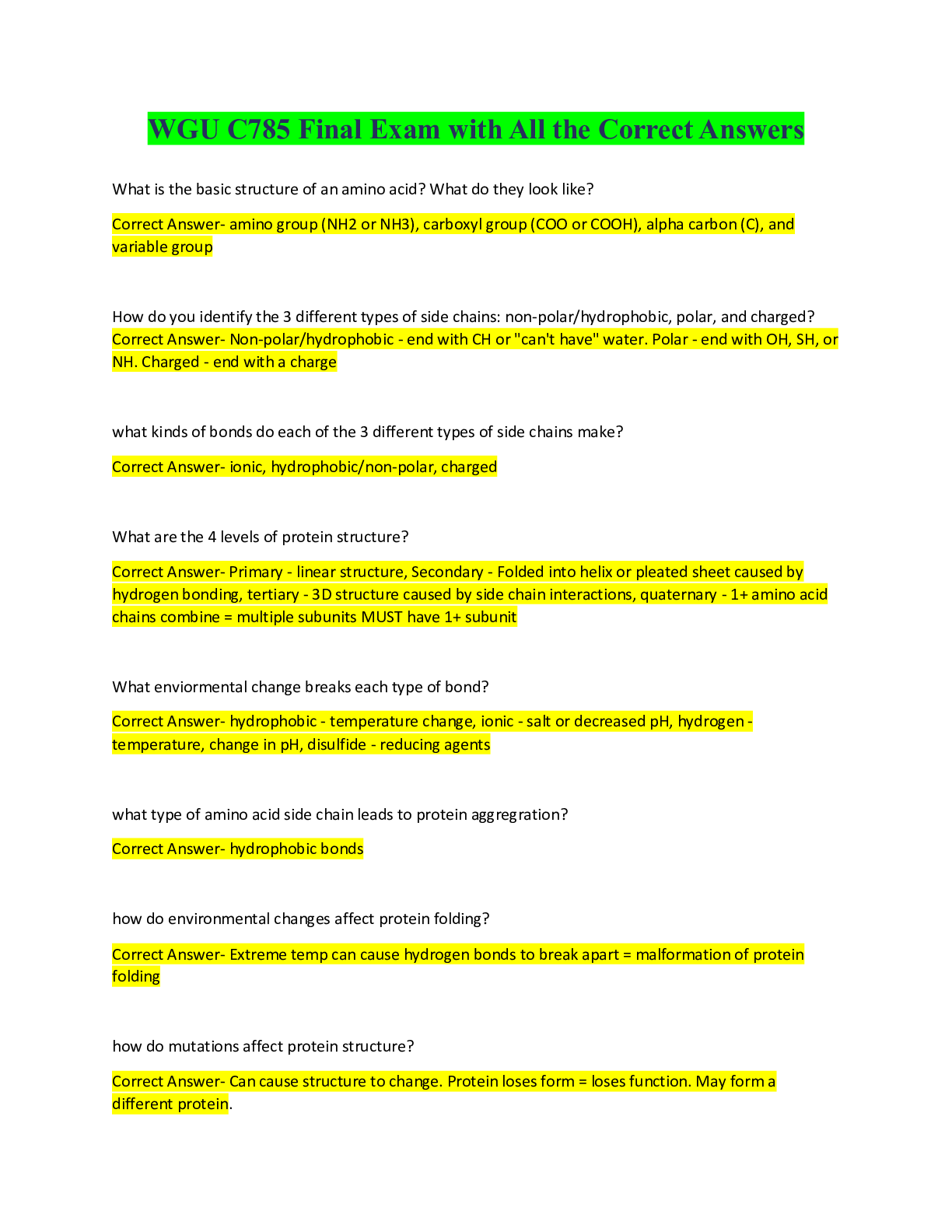
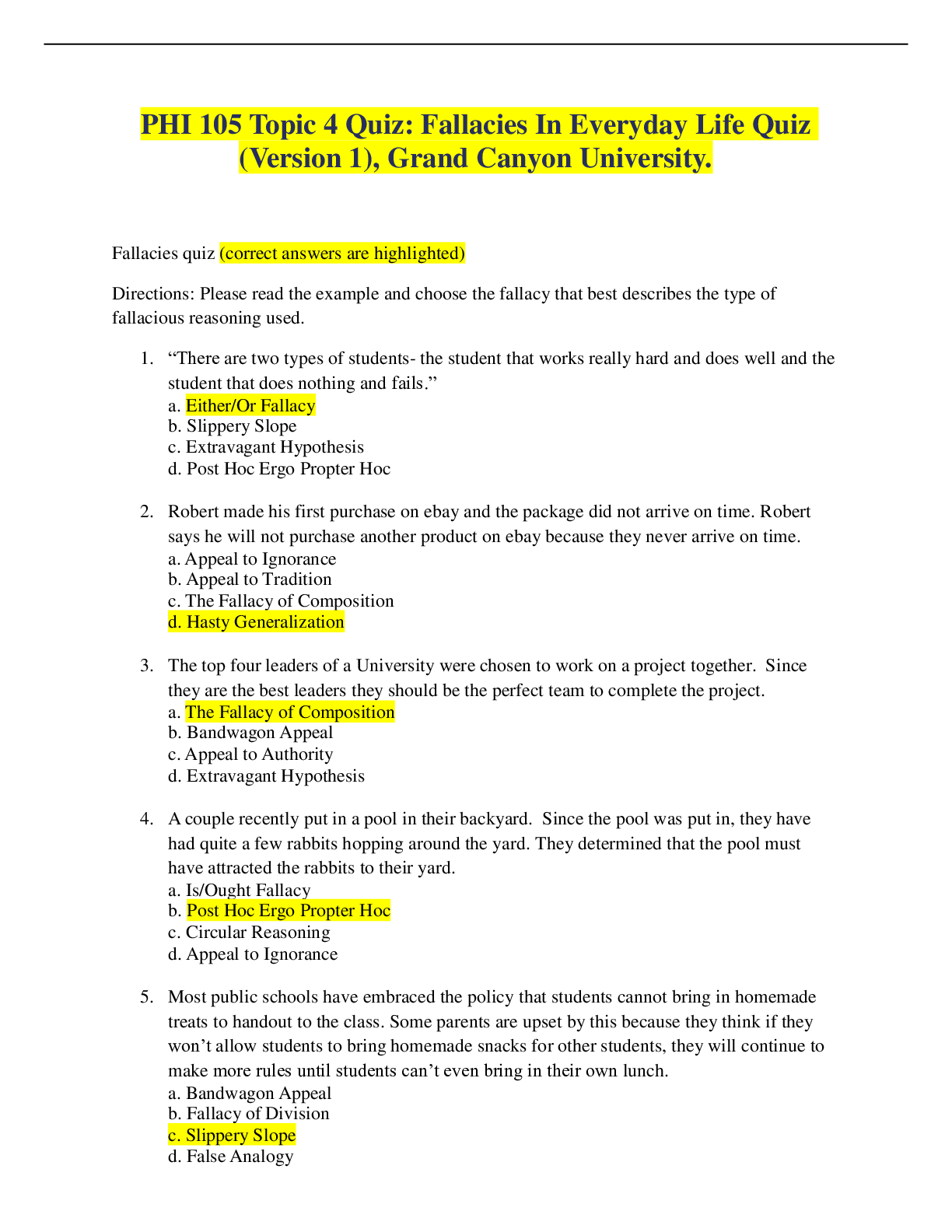
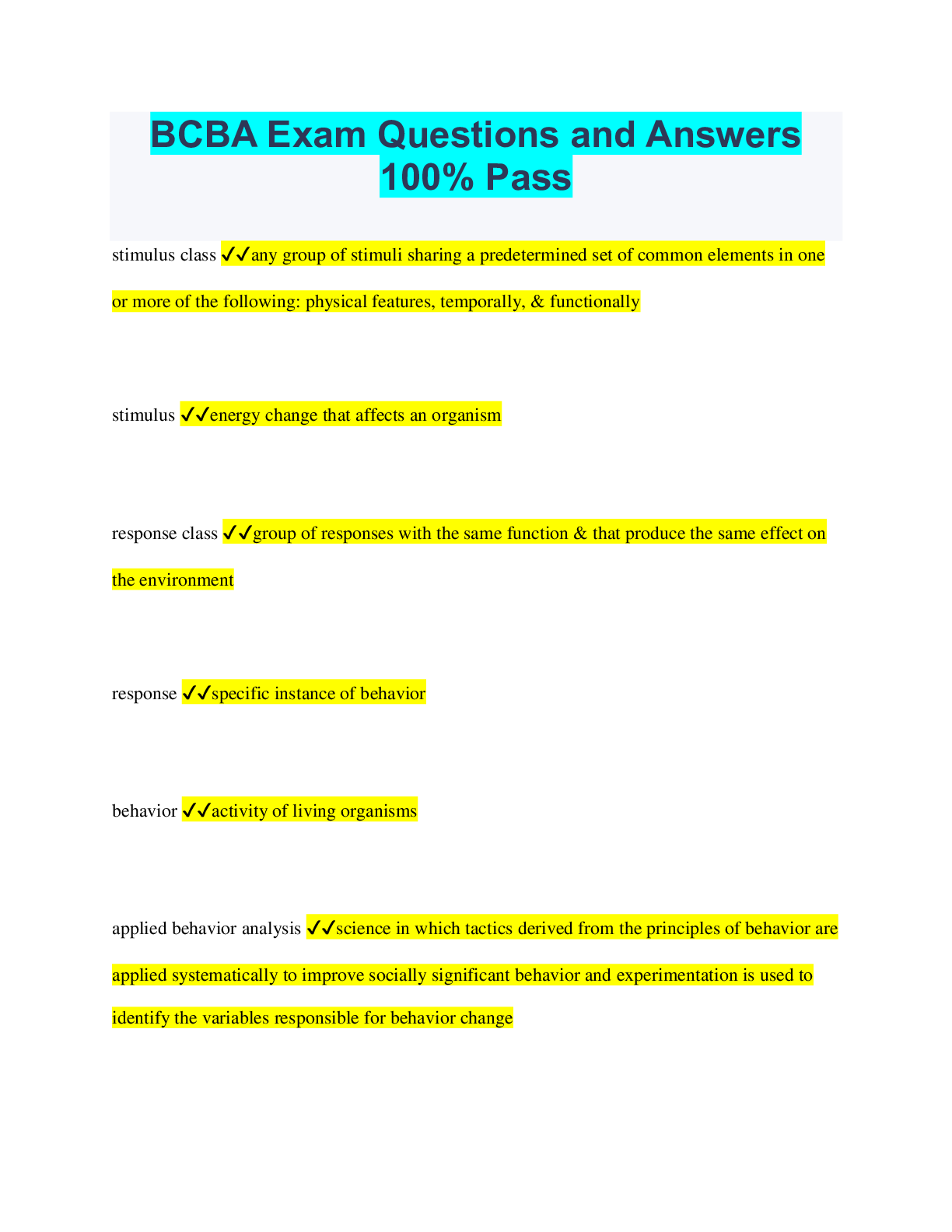
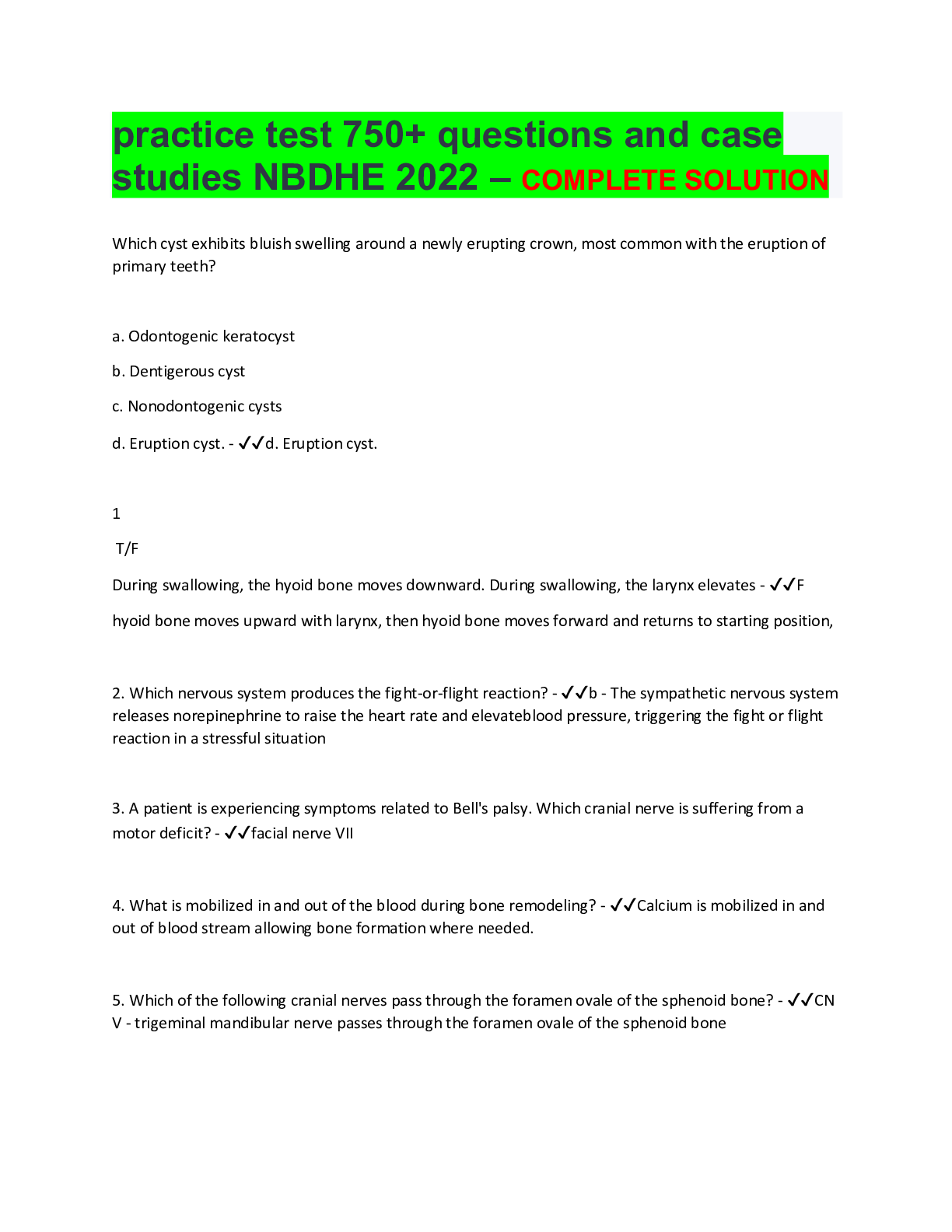
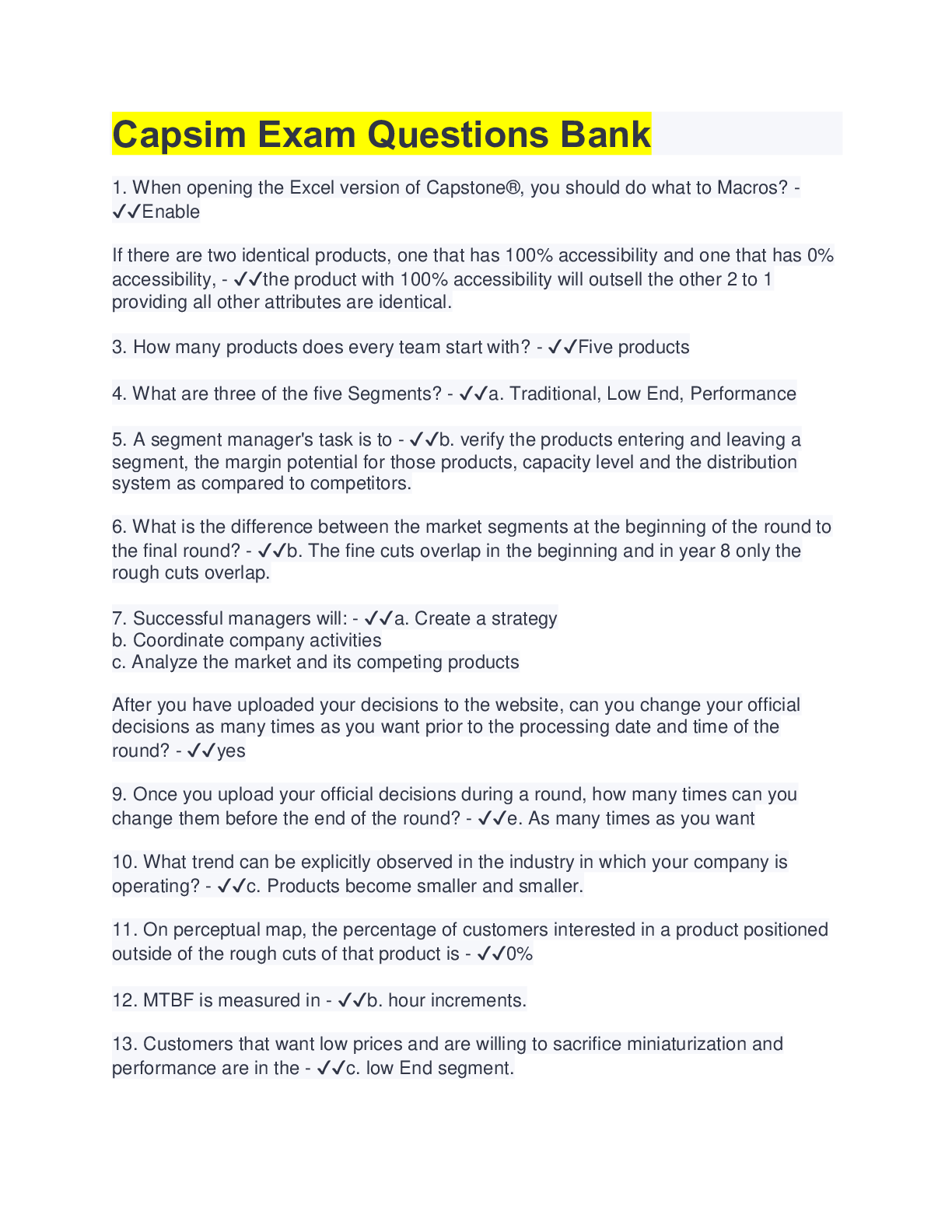
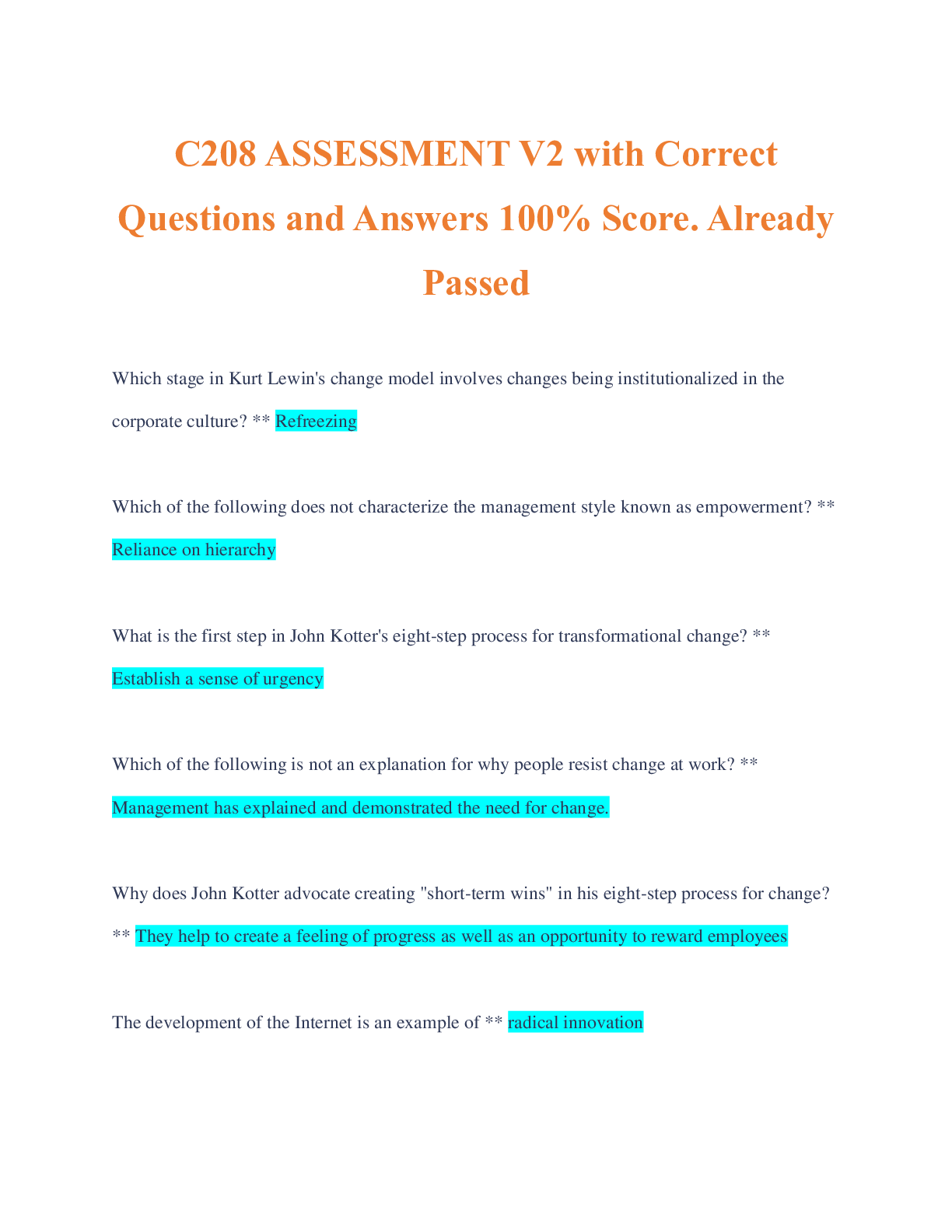
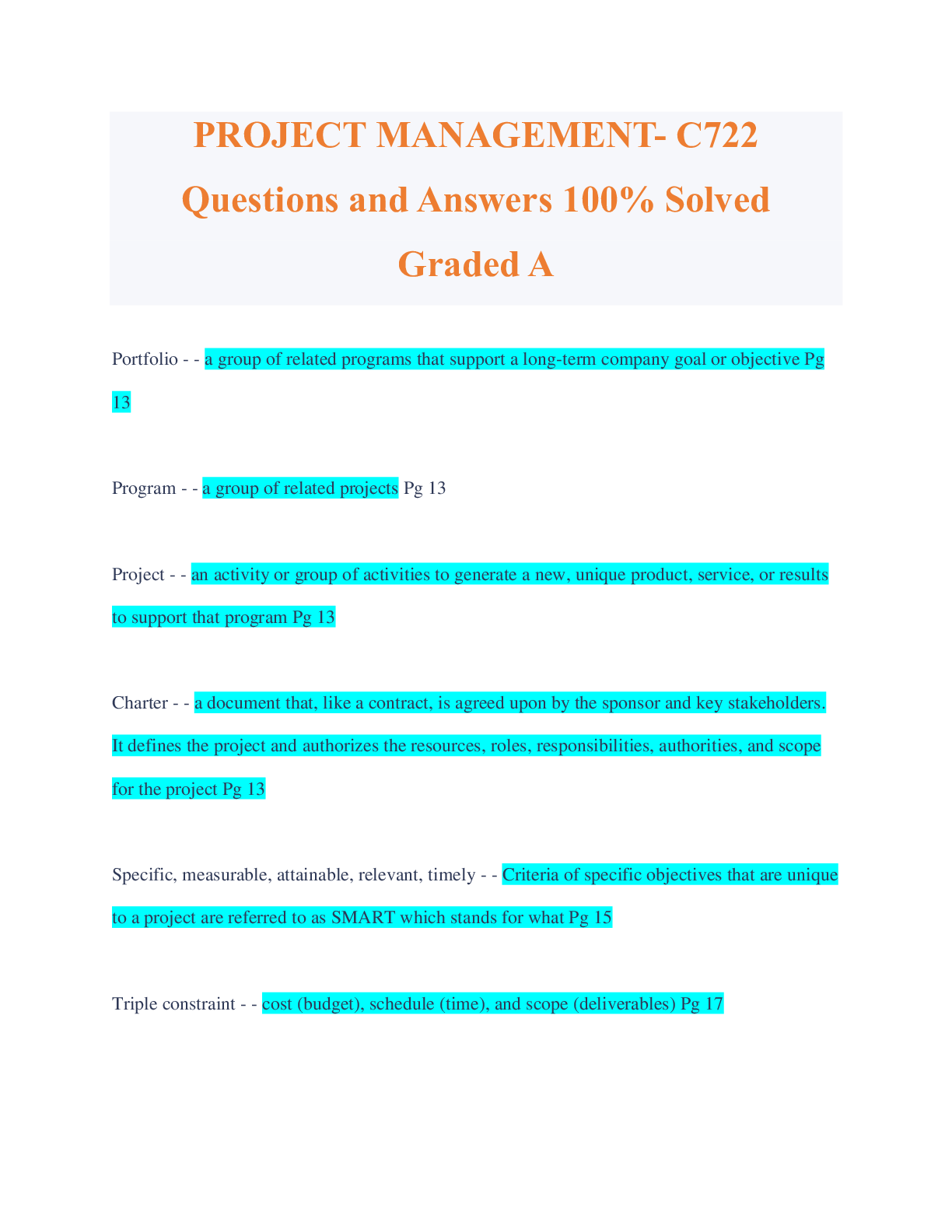
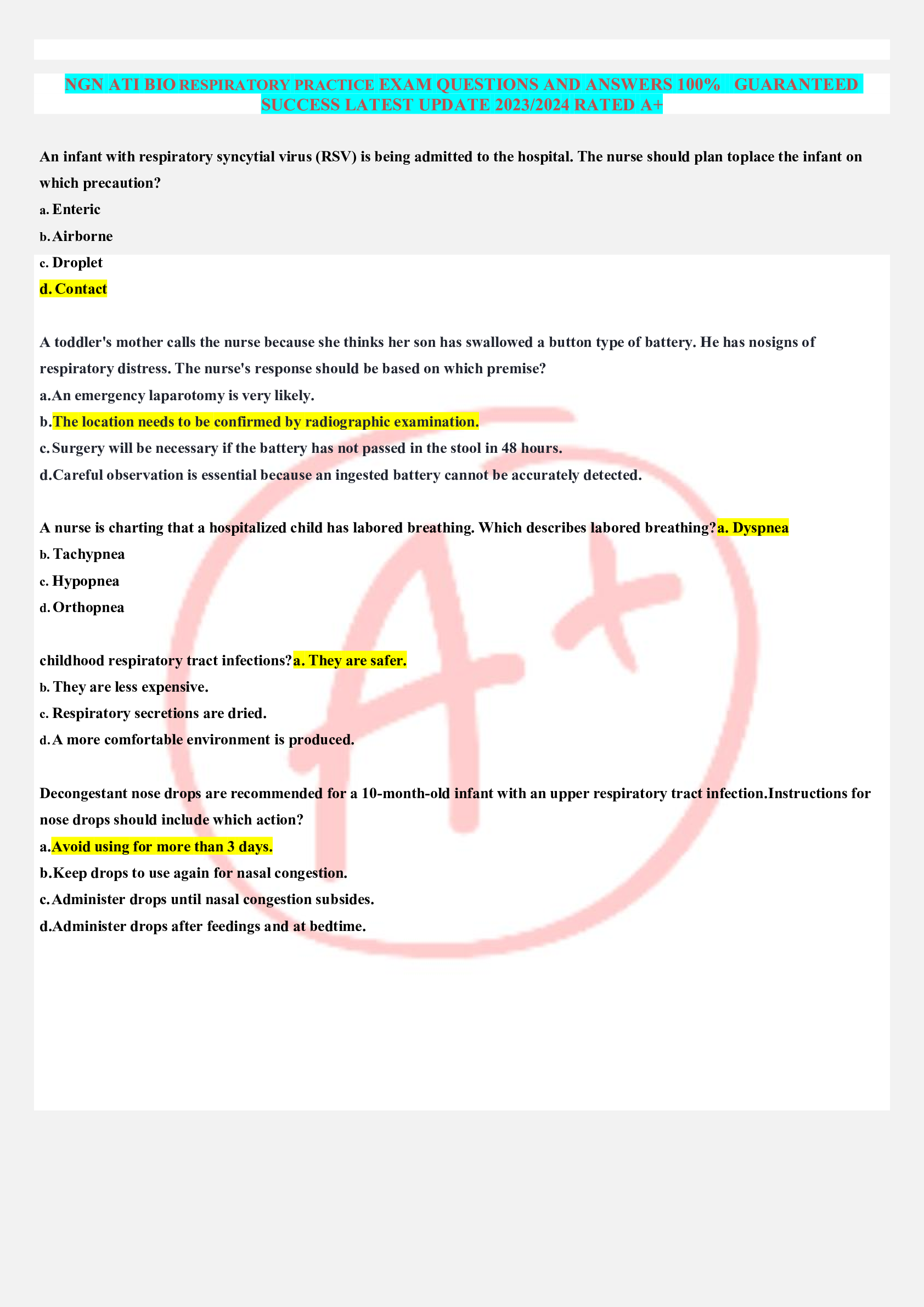
.png)
.png)
.png)
.png)
.png)


.png)
.png)
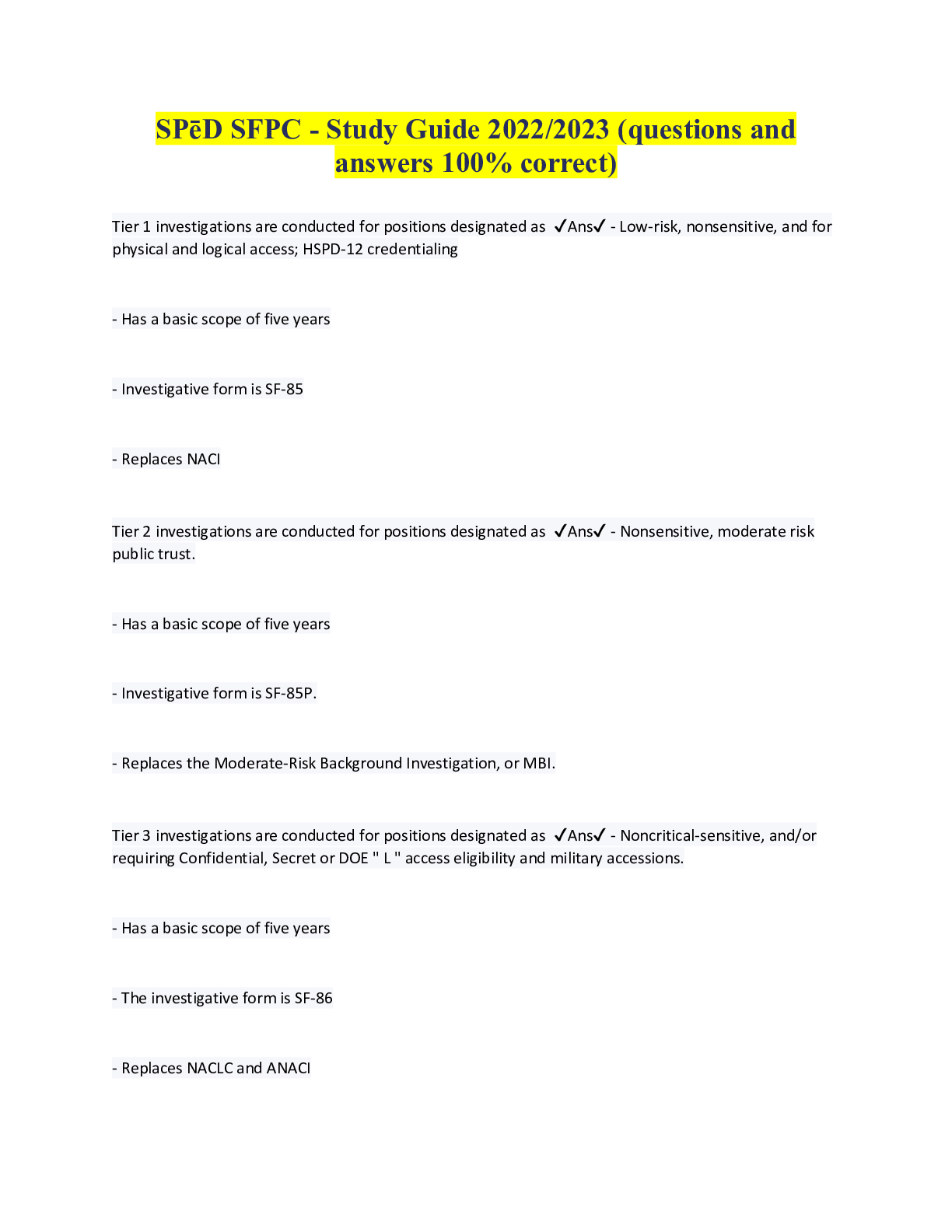
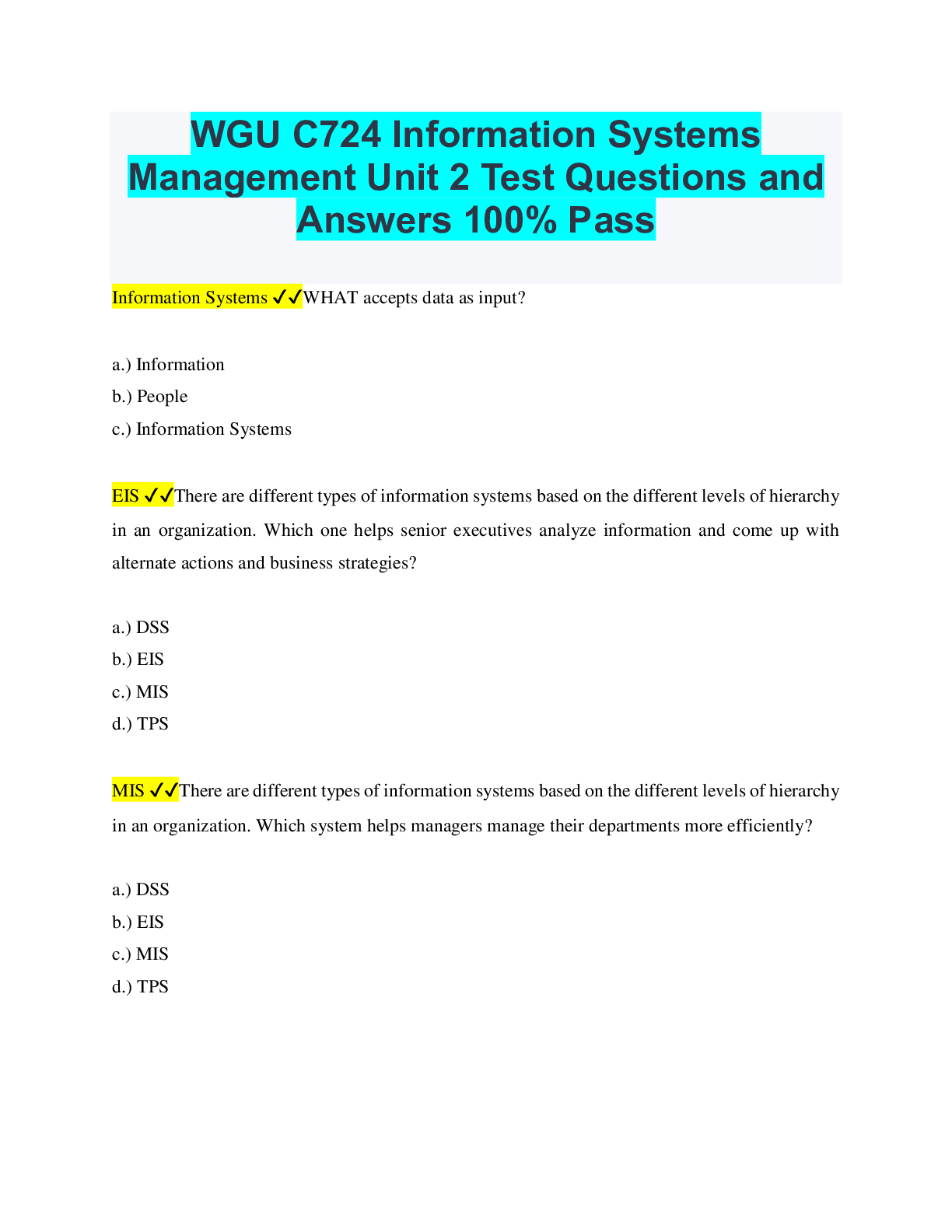
.png)
.png)

